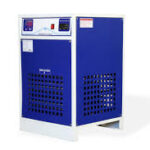Air Cooled Chillers
Air-cooled chillers are refrigeration units that rely on air circulation to expel heat from the refrigerant or coolant. Unlike water-cooled chillers, they don’t need a constant water flow.
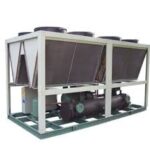
Water Cooled Chillers
Water-cooled chillers rely on water to transfer heat from the refrigerant, making them highly effective for cooling large buildings and industrial processes. These systems are widely used in commercial
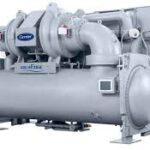
Screw Chillers
Screw chillers operate using screw compressors for effective cooling in industrial and HVAC applications. They are known for their efficiency and durability. Ideal for handling heavy cooling
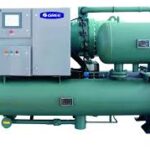
Variable Speed Chillers
Variable speed chillers automatically modulate compressor speed based on load requirements. This reduces energy waste and improves system efficiency. They are ideal for varying
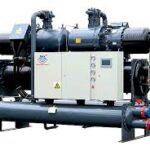
Oil Chiller
Oil chillers are designed to cool lubricating oil used in heavy machinery. They help maintain the oil within a safe operating range. This improves efficiency and extends equipment life.
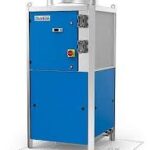
Hydraulic Oil Chiller
Hydraulic oil chillers are refrigeration units designed for cooling hydraulic oil in industrial systems. They prevent oil from overheating and losing viscosity this ensures optimal machine
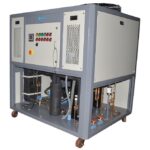
Online Chiller
Online chillers are advanced refrigeration systems with remote monitoring capabilities. They provide continuous cooling for various applications. Internet connectivity enables real-time control and adjustments.
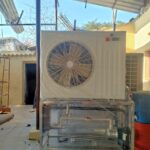
Glycol Chiller
Glycol chillers provide efficient cooling using a glycol-water solution. They help maintain precise temperatures in breweries, wineries, and food production. This prevents overheating and ensures product quality.
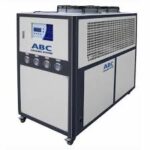
Spindle Chiller
Spindle chillers are cooling systems for high-speed spindles in machining equipment. They dissipate excess heat generated during operations. This enhances machine performance and durability.
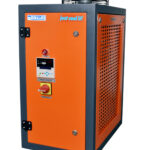
Refrigerated Air Dryer
Refrigerated air dryers lower compressed air temperatures to eliminate moisture. The cooling process condenses water vapor into liquid form. Dry air improves system efficiency and reduces corrosion.
